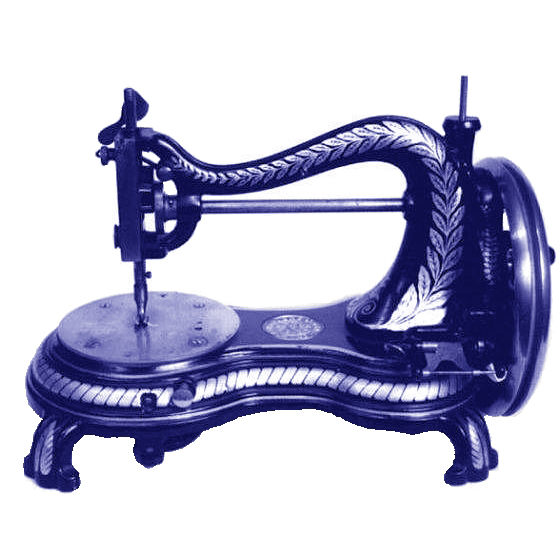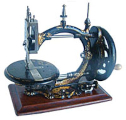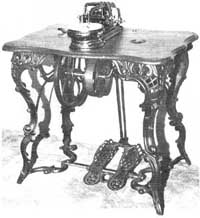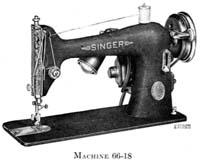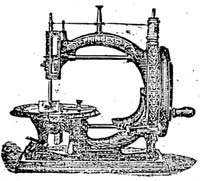Graham's True Stories
Number 2, Martha
It was a wet, windy day in Liverpool, and I was getting more and more dispirited trudging from shop to shop giving my spiel about the type of old sewing machines I was searching for. I'd had all the usual insults - "No sir, this is an antique shop. We don't sell sewing machines - or televisions."
Then I got half lucky. The owner of one shop actually listened to me and said that a lady had been in just a few days earlier with just such a machine. He described what could only have been a rare Britannia, made in the 1870s, and in the shape of a ship's anchor.
"Did you buy it", I asked. "Oh, no," he replied, "... we're an antiques shop ..." But he did give me a description of the lady. In her late seventies, wearing carpet slippers and wanting to sell the machine to help pay city taxes as her husband had died a few days before.
I now had a choice. I could continue the tour and get insulted even more, or try to find the little old lady. I chose the latter. A quick look in Yellow Pages revealed five funeral homes in the area. Two of them refused to co-operate at all, two were happy to pass on addresses of likely widows who fitted the description, and the fifth did the same after folding money changed hands.
I got lucky with the third address I hit. Right age, right area and widowed within the right time span. I called, explained my mission, and was invited in. The sewing machine was there and looking good. I bought it, paying far more than she had been asking, and was very pleased with my purchase. I explained that, as well as collecting sewing machines, I dealt in all manner of antiques.
Now, every six months when the city taxes are due, I get a post card from Martha. She shows me the tax bill, I look around and suggest what I can pay for various items to cover the demand. The deal works great for both of us. I get to buy goods at a fair price - and there's enough left in Martha's house to last her another 50 years.
The moral here is clear.
I could have ripped her off the first time I called. But then, there would have been no postcards, no six-monthly visits, no tea in front of the coal fire, and no stories of Edwardian England when Martha was at her prime.
I know that one day the postcards will stop, but it will take a lot longer to forget Martha, her worn carpet slippers, the mangy cat she loved and a unique friendship that started with a search through the funeral homes of Liverpool.
